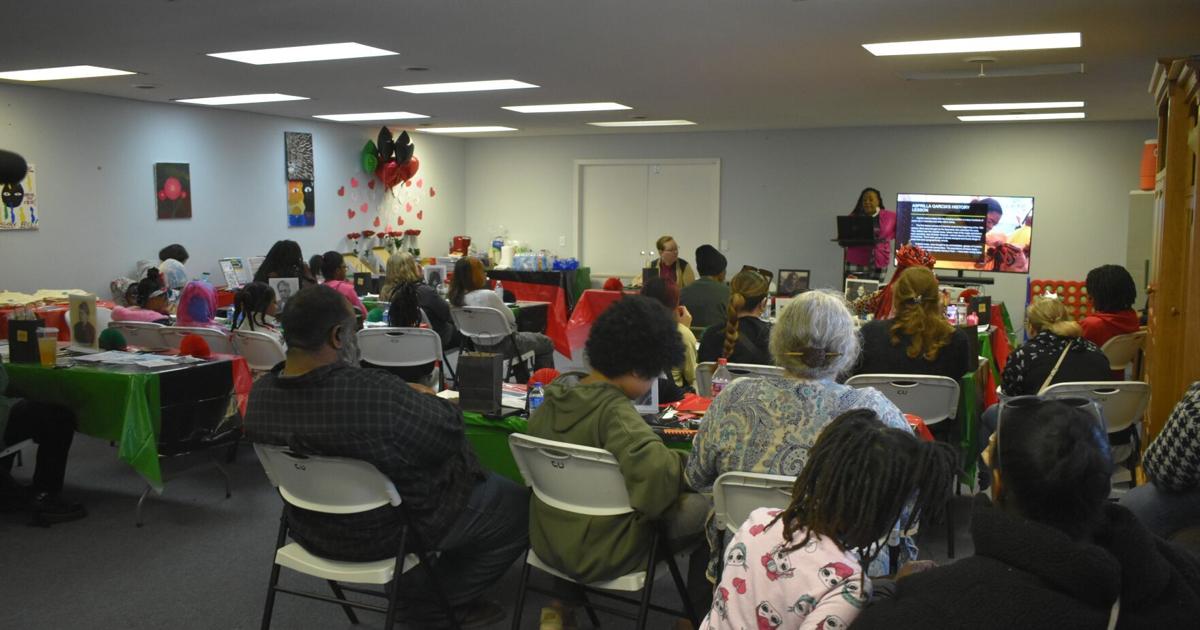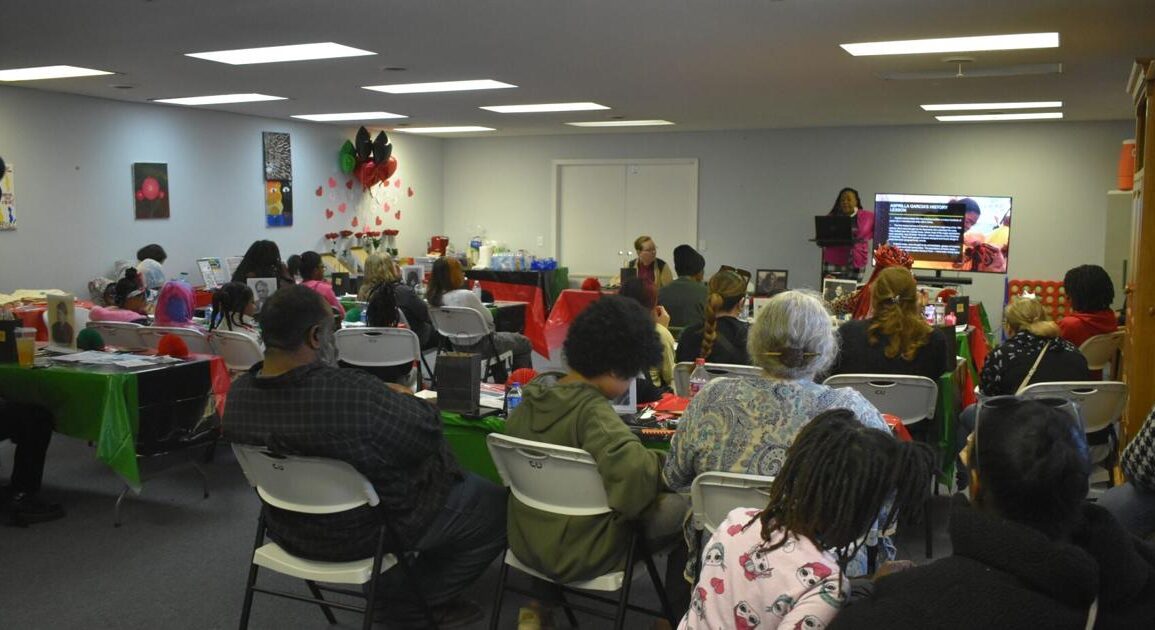
CARBONDALE, Ill. — For centuries, Black men and women have used hairstyles as a form of expression. It is a cultural staple that upholds African American history.
On Monday, in celebration of Black History Month, Carbondale United hosted Black Hairstory, an event teaching community members about the significance of various hairstyles and demonstrating haircuts and braiding techniques.
The event was about more than learning protective hairstyles. It was about celebrating Black history and embracing styles passed down by generations of African Americans.
Brittany Matthews, a licensed cosmetologist, demonstrated different braiding styles at Black Hairstory. To her, learning Black hairstyles brought her closer to her family and culture.
“I have a lot of memories of my grandmother pressing my hair,” Matthews said. “It brings back that bonding … Those are just memorable moments, invaluable moments that I will never forget, and every Black child should experience.”
Matthews uses her professional hair knowledge to make young Black women confident in expressing themselves with their hair.
“I want all Black girls to know that your hair is your hair. Don’t compare it to anyone else. Don’t try to make it look like something else,” she said. “Embrace your hair, and wear styles that make you feel comfortable and not wear styles that make other people feel comfortable.”
During the presentation, attendees learned the historical significance of Black hairstyles, such as cornrows and curved braids. In the era of slavery, those hairstyles could indicate possible escape routes and hide seeds to nourish enslaved people during their escape.
The hairstyles that were once used as a form of survival are now a part of Black history.
“It’s very important. Our hair is our culture. It’s who we are. It’s what represents our culture,” Matthews said. “We represent so much.”
Hydia Norwood, a mother of two girls, attended the event so her daughters could learn to love their hair like she did at a young age.
“Cultural-wise, I want them to learn how to do it like I did,” Norwood said.
Matthews hopes the event teaches Black men and women to embrace their hair.
“I feel like Black people should be able to express themselves and not be so much judged by their hair and take it as a form of expression,” she said.
This is Carbondale United’s fourth year hosting Black Hairstory. The nonprofit collaborates with the Carbondale Public Library, Centerstone, Beyond the Wall, and the Black Chamber to host the event.
Carbondale United Director Nancy Maxwell started Black Hairstory because she saw a need for it in the community.
“I don’t really see too many people teaching about braiding,” Maxwell said.
In a historically marginalized culture, Maxwell believes it’s important to celebrate freedom.
“It means a lot to me that I can wear it any way I want to now,” she said.
This post was originally published on this site be sure to check out more of their content.









